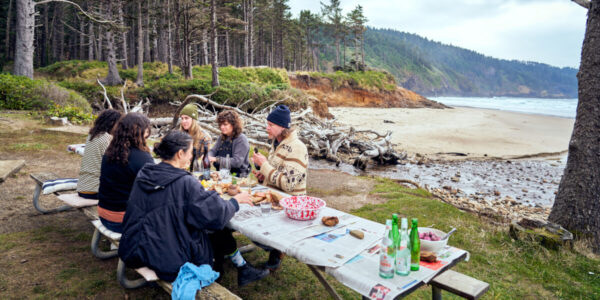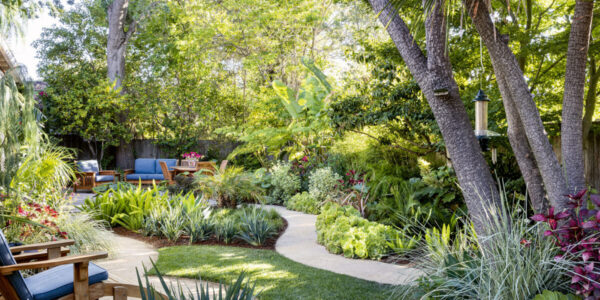
Birds of Prey Are More Important Than You Think. Here’s Why.
Post Ranch Inn’s falconer explains why these apex predators are key to ecosystems survival.
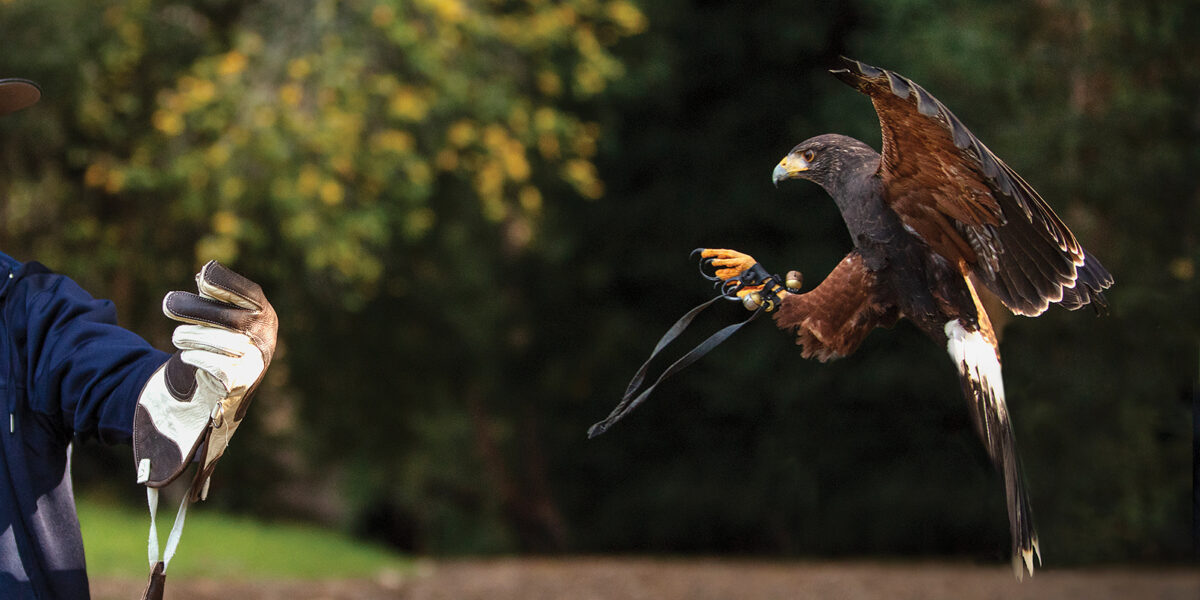
Photo courtesy Post Ranch Inn
It’s an uncharacteristically sunny winter morning in Big Sur, and guests have gathered next to the pond at Post Ranch Inn, a restored wildlife habitat on the iconic California resort that’s home to native waterfowl, fish, and fauna. Master Falconer Antonio Balestreri and his winged ambassadors greet us, and he means business. From the jump, it becomes clear Balestreri is not just here to show off some badass birds; he’s a naturalist and wildlife educator who’s immediately and infectiously passionate about the preservation of these apex predators which are essential to local ecosystems.
Balestreri is a native of the Monterey Peninsula who has had a passion for birds of prey since he was a child. He has a degree in wildlife management from nearby Cal Poly State University, San Luis Obispo, and has worked with the Ventana Wildlife Society to co-design the Condor release facilities at both Big Sur and Pinnacles National Park. He’s one of only a handful of falconers in California to possess a Falconry Education Permit, which authorizes him to possess raptors for the purpose of Falconry Education Programs like the one at Post Ranch Inn.
While many know Post Ranch for its world-class dining at Sierra Mar and breathtaking redwoods-inspired architecture, its sustainability initiatives are truly top-tier. The 100-acre property includes 90 protected acres that have become home to rare, endangered, or threatened species, including the Smith’s blue butterfly, the California red-legged frog, and most notably, the California condor, which nearly went extinct in the late 1980s due to poisoning, habitat degradation, and poaching. Balestreri seamlessly weaves the stories of these conservation efforts throughout the experience, dropping nuggets of knowledge as he showcases his incredible birds of prey.
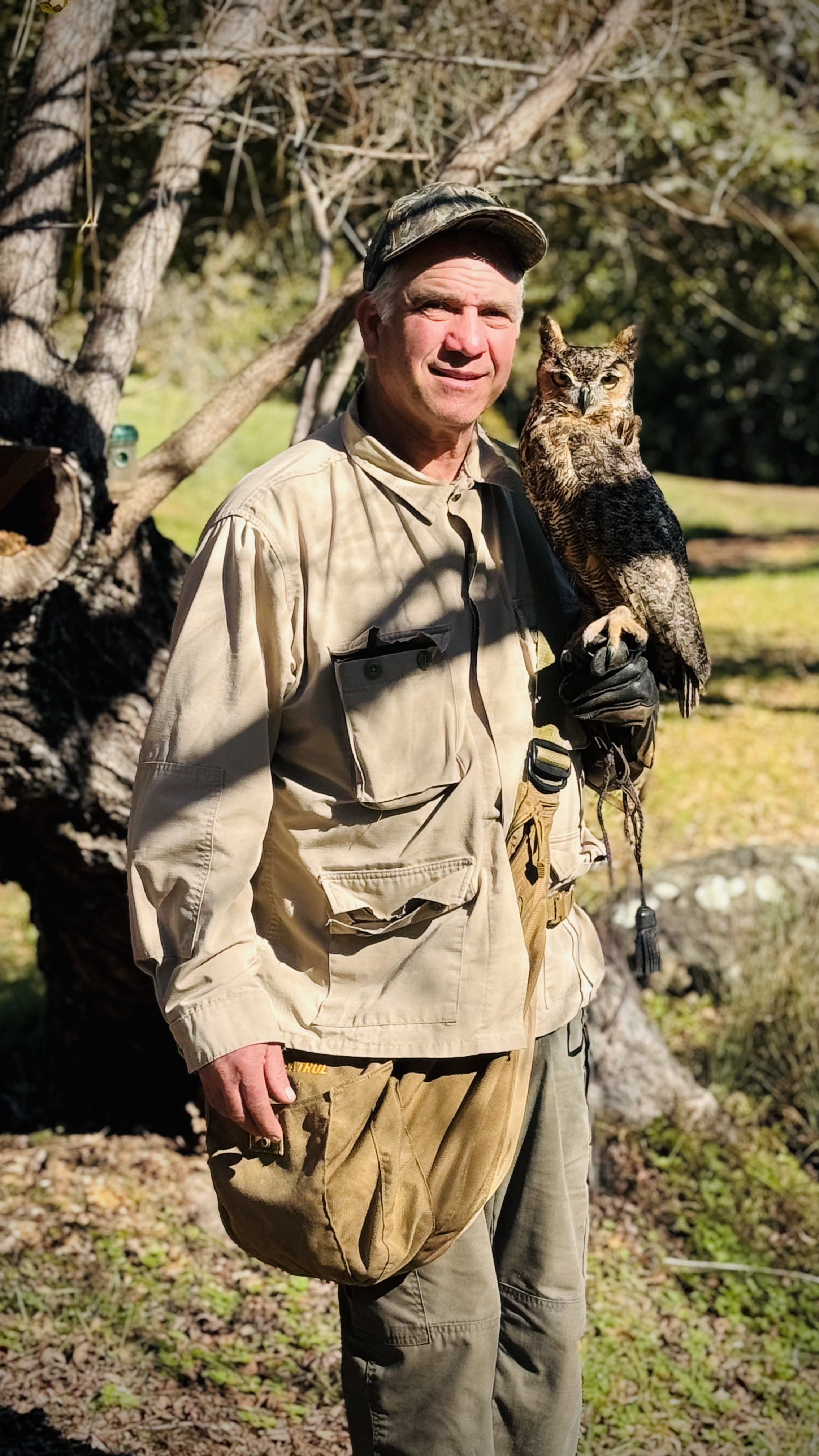
Krista Simmons
Here, the ancient sport of falconry, which originated in Saudi Arabia, provides a chance for guests to get up close and personal with some of nature’s most incredible animals. It’s a portal for learning about raptor conservation, biology, and the roles these predators play in our surrounding environment.
“Birds of prey are an indicator species in that they highlight the health of the environment around them,” says Balestreri. “They are at the top of the food chain. They’re relatively long-lived and don’t reproduce that often. They have a propensity to accumulate toxins in their tissues, and when something is out of balance in the ecosystem, they are the first to feel the effects, and their numbers drop.”
In his flock Balestreri has a peregrine falcon, a great horned owl, and a Harris hawk, among other species. Each is remarkably beautiful in its own way, and has its own personality. Beyond just being beautiful, they’re a peek into our own survival on this planet.
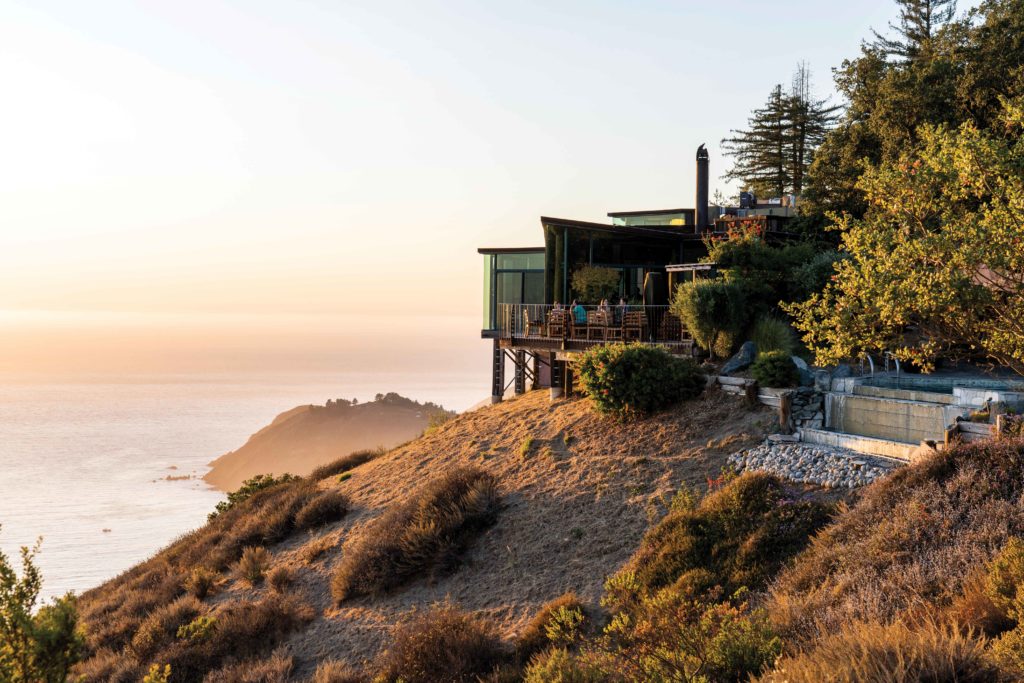
Thomas J. Story
“Why should we care?” he asks. “Well, the reality is that what is killing them will likely eventually kill us. That’s an indicator species.”
At the end of the educational portion, guests are given the chance to fly Diego, a cheeky and remarkably swift Harris’s hawk that recently rebounded from a knee injury.
Balestreri is passionate about continuing to provide these opportunities for travelers to safely and sustainably interact with these magnificent animals, and believes that travelers seeing them firsthand is an opportunity to inspire further conservation efforts. It’s hard to want to protect what we don’t understand, after all. It’s not uncommon for guests to see condors and peregrine falcons in the wild while bird-watching at the Ranch.
“Falconing really is about giving guests the opportunity to observe, learn, and most importantly, enjoy nature,” he says. “All of nature is worth paying attention to. The more you pay attention, the more you learn. The more you learn, the more likely you are to protect the very thing you learned about. Paying attention and enjoying nature is the best chance we have in protecting it.”
